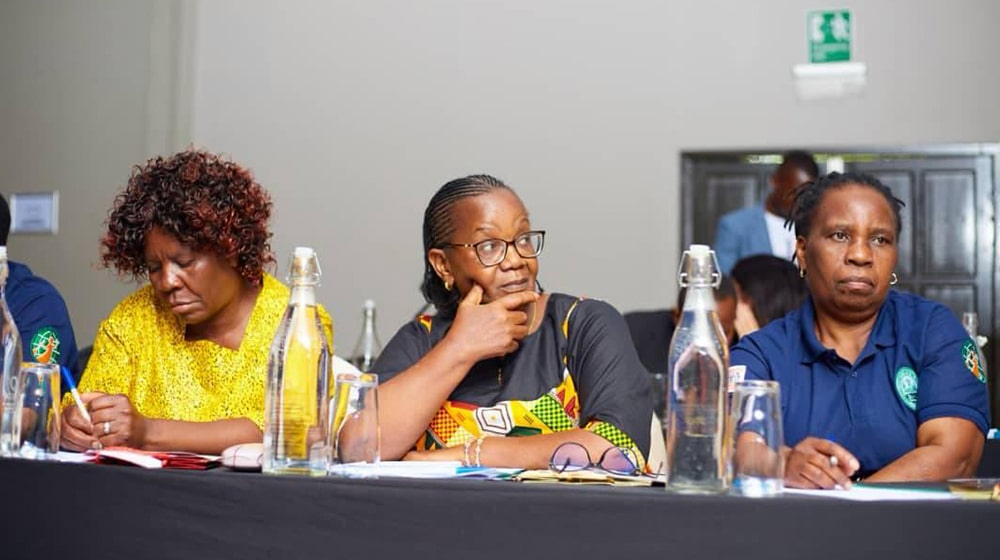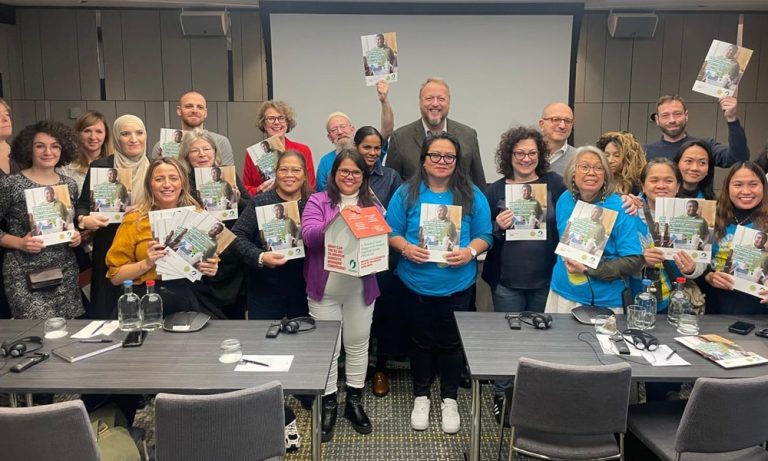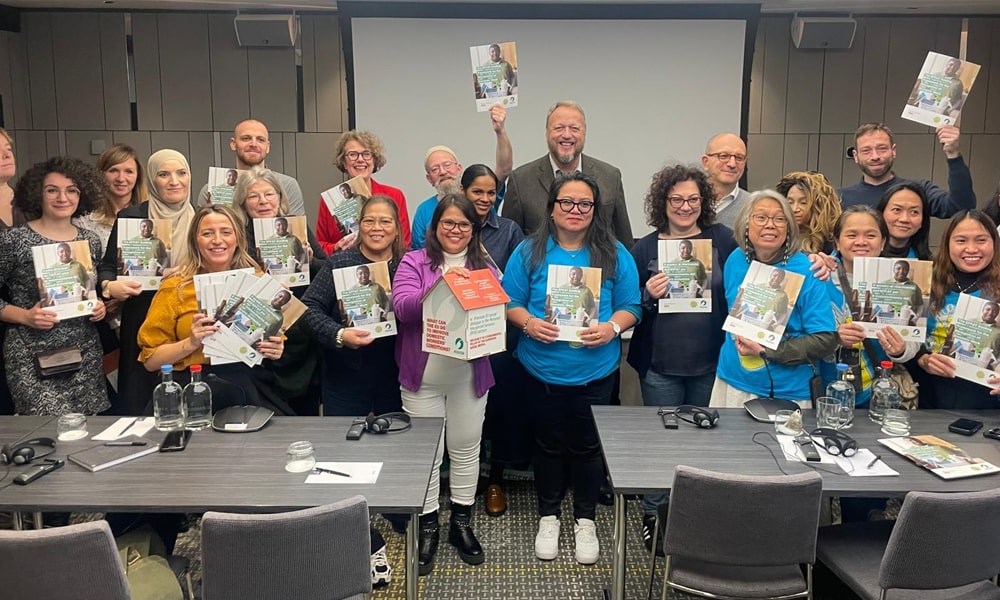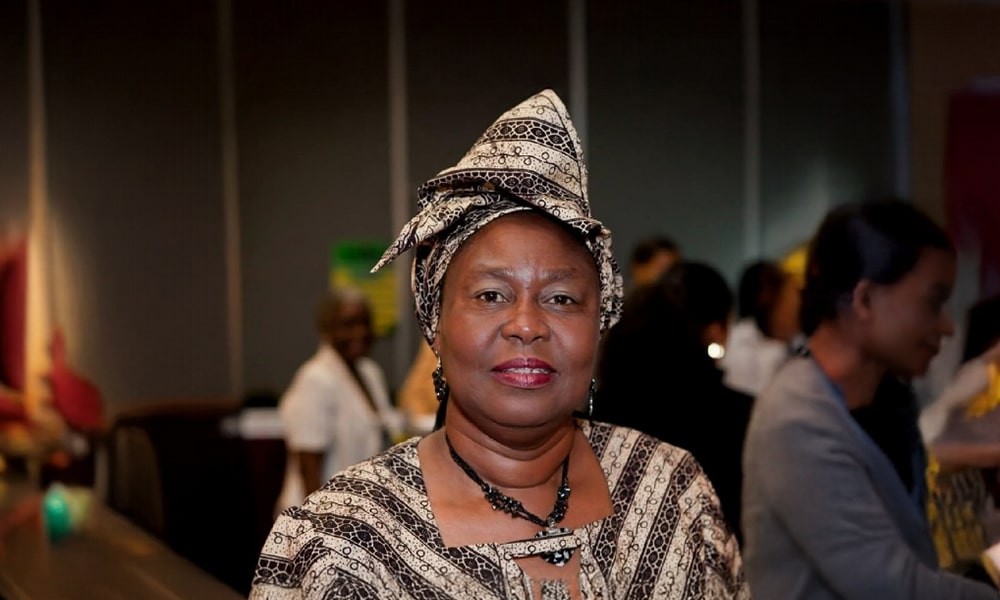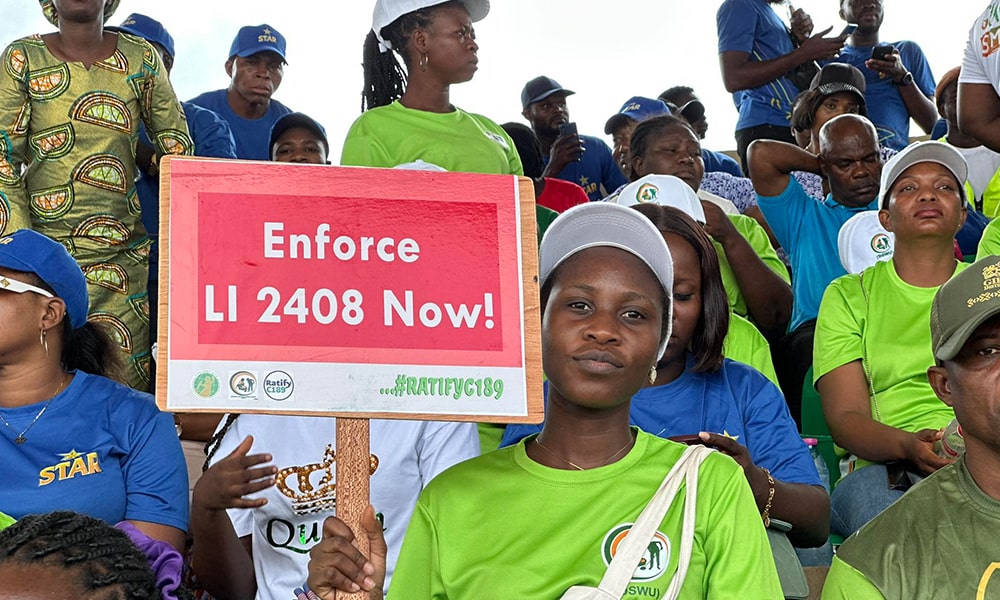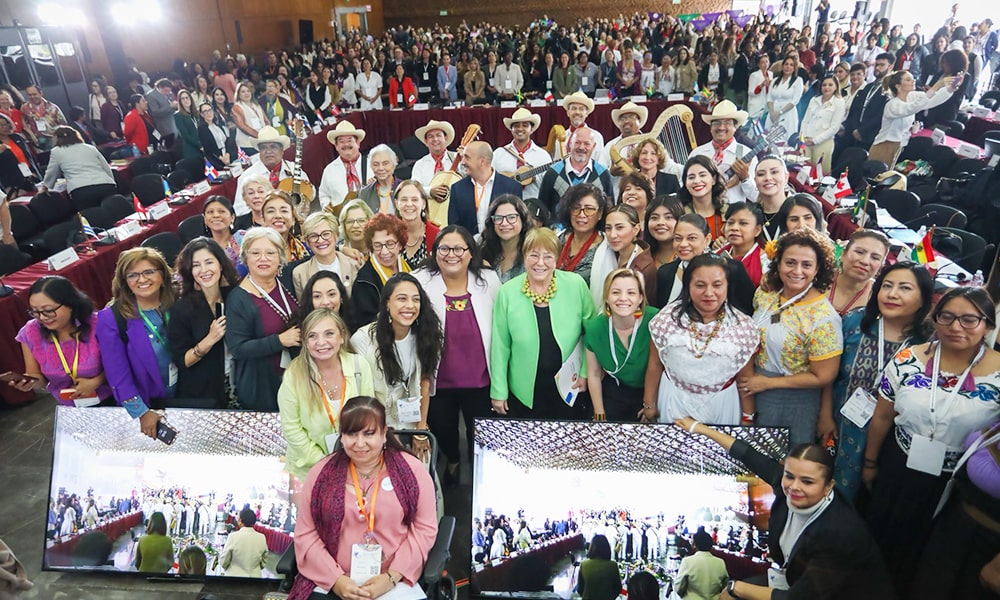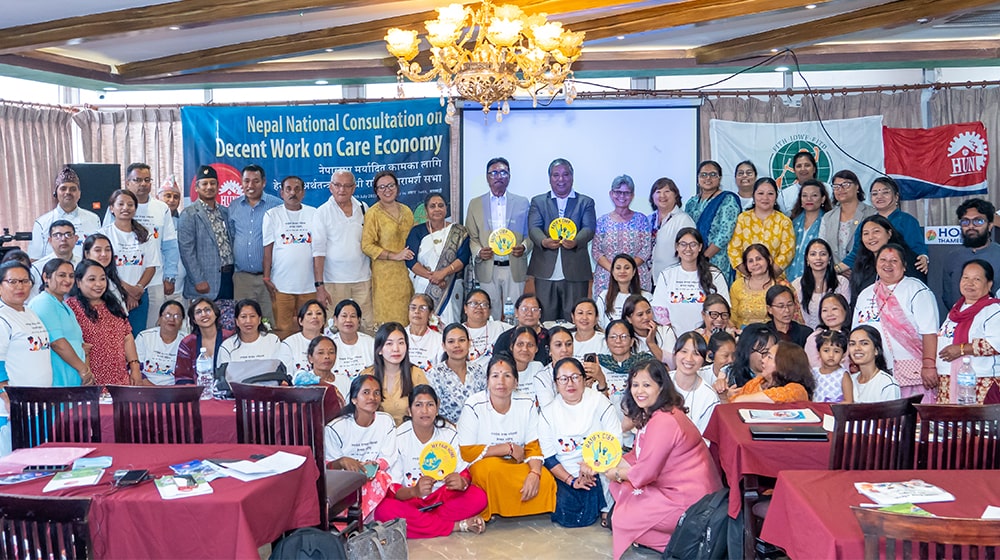Historic Milestone of Our Affiliate ZDAWU!

As a result of a powerful process of social dialogue fostered by the Zimbabwe Domestic and Allied Workers Union (ZDAWU), led by the IDWF’s Vice President Toindepi Dhure, the Domestic Employers Association of Zimbabwe (DEAZ) has been officially established. This is an unprecedented victory for our sector, as it lays the groundwork for collective bargaining and, therefore, for better working conditions for domestic workers in the country.
The first organization of domestic workers’ employers in Zimbabwe was launched on January 17 at an event attended by key stakeholders such as representatives of the Ministry of Labour, Public Service and Welfare; the Ministry of Health and Child Care; the Gender Commission; the Employers’ Confederation of Zimbabwe (EMCOZ); the International Labour Organization (ILO); WIEGO; the Registrar of Labour, Public Service and Welfare; the National Employment Services for Labour, Public Service and Welfare, ZDAWU and the IDWF; among other social partners.
The Zimbabwe Domestic and Allied Workers Union (ZDAWU) has been at the forefront of advocating for the rights and recognition of domestic workers. As part of those efforts, it has played a pivotal role in the establishment of DEAZ through persistent lobbying and engagement with employers of DWs to address common concerns and highlight the importance of fair treatment and legal compliance. ZDAWU has also conducted campaigns to educate both DWs and employers about their rights and responsibilities under existing labour laws and international conventions, such as ILO C189. These social dialogue initiatives also included government officials, creating a tripartite structure crucial to the formation of DEAZ. The Ministry of Labour’s involvement ensures that discussions will anchor within a legal framework that promotes fair labour practices.
According to Toindepi Dhure, ZDAWU’s General Secretary, the foundation of DEAZ is expected to enhance collective bargaining capabilities for both DWs and their employers. By establishing this association, ZDAWU aims to create a formal mechanism, a National Employment Council, through which working conditions and rights for DWs can be negotiated. In the short term, the tripartite dialogue is expected to address critical issues such as minimum wage, working hours, paid leave, formal employment contracts, social security benefits, protections against abuse, and unfair labour practices, fostering a safer and more equitable work environment for DWs.
Dhure added that now there is potential for more formal employment in the sector, which would enhance job security and clarity regarding workers’ rights and responsibilities. He believes social dialogue will help address disputes and prevent conflicts between employers and DWs, promoting a stable work environment, which is essential in sectors like domestic work, where informal arrangements often lead to misunderstandings. Furthermore, initiatives aimed at training DWs will likely increase their employability and career advancement opportunities in both domestic work and related sectors like hospitality.
“The establishment of DEAZ marks a crucial step towards recognizing and legitimizing the contributions of domestic workers. This recognition is essential for fostering respect and dignity in the profession. As societal norms evolve, there is a growing awareness of the rights of domestic workers. Many employers will understand that fair treatment not only benefits workers but also enhances their own household environments. This shift in perspective is critical for fostering a culture of respect and cooperation between employers and employees.”
Toindepi Dhure, ZDAWU’s General Secretary and IDWF’s Vice President
DEAZ’s President, Sarah Vale, pointed out that the establishment of DEAZ will offer substantial advantages for both employers and domestic employees. The association will provide employers with training and technical assistance for setting up job descriptions and contracts of employment, producing monthly payslips, and creating running records of monthly salaries, leave, and overtime. It will also provide guidance on fair labour standards, in respect of national labour laws and ILO C189 and C190, and ensure that any disciplinary hearings are conducted correctly, thus avoiding labour disputes over matters such as unfair practices and wrongful dismissal.
DEAZ has already joined various key social partners with whom it will liaise to offer special benefits to employers related to the healthcare and welfare of employees. Additionally, it will provide training for DWs on the specific services they provide, such as cooking, cleaning, childcare, home-based care, nurse-aid care, first aid, and gardening. The organization will also implement programs on occupational health and safety, as well as initiatives aimed at improving the medical care and social security of employees.
Vale noted that many of the current problems with domestic employment in Zimbabwe are experienced primarily by the employees, such as low wages and long work hours. Some employees are required to work up to 70 hours per week, compared to the legal maximum of 49 hours. Moreover, there is sometimes no rest period for the employees, and any overtime is commonly unpaid and unacknowledged. “While such problems certainly exist, it is difficult to quantify their precise frequency and extent because domestic employment is a private affair, and employees can be reluctant to complain, for fear of dismissal and dread of the great difficulty of finding another job,” she explained.
According to Vale, the wage problem is aggravated by the fact that the legal minimum wage for the domestic sector is updated on average once a decade, much less frequently than in other sectors. This is especially problematic due to the rapid changes that can occur in Zimbabwe’s economy. Another very frequent cause of grief, experienced by both employees and employers, is the lack of a clear contract and a comprehensive job description, which results in misunderstandings arising from the almost universal failure to issue a suitably detailed payslip, covering matters such as basic monthly pay, date of engagement, overtime, working hours, grade, allowances, benefits, loans, and leave.
“Harmony between the employer and employee in the workplace is to the benefit of both parties. It is important, therefore, to identify and solve the problems that each party experiences. We will encourage employers to join the association and receive advice and assistance on managing their employees with competence and empathy within the law. The strategic objectives of DEAZ are anticipated to set a benchmark for others to emulate on both regional and international platforms.”
Sarah Vale, DEAZ’s President
Zimbabwe hasn’t ratified ILO Convention C189. Domestic workers are covered by the Labour Acts of 1984 and 1985 (amendment) and Labour Act Chapter 28:01, setting basic labor rights on minimum wage, written contracts, working hours, rest time, overtime, leave, termination, and various allowances. Yet, DWs in Zimbabwe have historically faced exclusion from social protections and have been denied labour rights, which has contributed to informality and exploitation. The newly adopted tripartite social dialogue platform should allow DWs to negotiate the fair working conditions that they deserve.
Throughout history, collective bargaining and other expressions of collective voice and representation have been essential for achieving progress, both in law and in practice, towards the realization of decent work for DWs. Freedom of association and collective bargaining are fundamental rights at work. Around the world, the domestic workers’ movement has demonstrated and claimed these fundamental rights by organizing collectively to improve their working conditions and earn respect, despite the numerous challenges they face in their effective organization and representation in bipartite and tripartite social dialogue. Through lobbying efforts and social dialogue, the IDWF and its affiliates have achieved the ratification of C189 in 38 countries; driven the revision or adoption of laws and policies in the sector; and contributed to implementation, compliance, and formalizing employment.
“The successful implementation of social dialogue and collective bargaining in the domestic work sector demonstrates that organized efforts can lead to meaningful change. Collective bargaining empowers workers by giving them a voice in negotiations, ensuring their interests are represented. This is particularly important for marginalized groups like domestic workers, who have historically been excluded from labor protections. This achievement not only will improve domestic workers’ individual circumstances but will also strengthen communities. When workers are treated fairly and have access to social protections, they can contribute more effectively to their families and local economies, fostering resilience and stability.”
Toindepi Dhure
